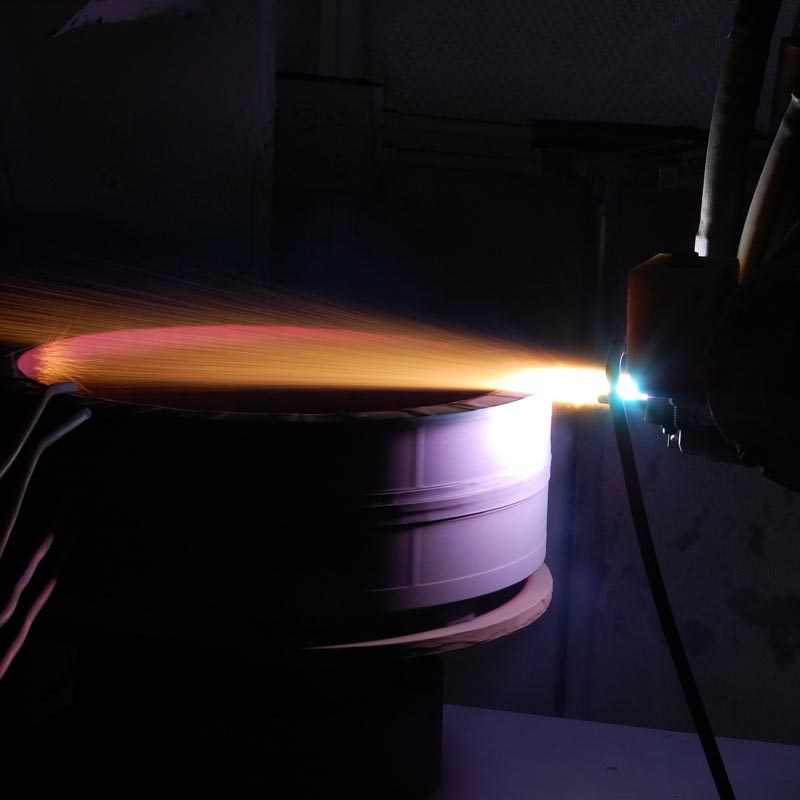Industrial Ceramic Coating
Industrial ceramic coatings are specialized coatings that are applied to metal surfaces in order to improve durability and resistance to wear and corrosion. The term "industrial ceramic coating" can refer to various types of coatings, each with its unique set of properties. However, all industrial ceramic coatings share two key features: they are extremely hard and they are virtually chemically inert. For these reasons, ceramics have often been used in pumps and valves to restore dimension and significantly increase component life.
Advantages of Ceramic Coatings
Industrial ceramic coatings offer a variety of advantages over traditional metal coatings. Advantages include:
- Improved durability: Ceramic coatings are much harder than metal coatings, making them more resistant to wear and tear. This improved durability can lead to a longer lifespan for the coated surface.
- Increased resistance to corrosion: Corrosion is a major problem for metal surfaces exposed to the elements. Over time, the metal will break down, causing structural damage and compromising the integrity of the material. One way to protect metal surfaces from corrosion and improve corrosion protection is to apply a ceramic coating. Ceramic coatings act as a barrier between the metal and the environment, preventing moisture as well as other corrosive materials from coming into contact with the surface. In addition, ceramic coatings can help to reflect heat away from the metal, keeping it cooler and preventing thermal expansion and contraction.
- Increased Wear Resistance: Wear is the process of material loss on a surface due to contact with another object. Over time, this can lead to serious damage and even failure of the affected parts. There are many different causes of wear, but some of the most common include friction, abrasion, and corrosion. Industrial ceramic coatings can help increase wear resistance in parts by providing a tough, durable barrier against these forces. By increasing wear resistance, industrial ceramic coatings can help prolong the life of parts and reduce downtime and repair costs.
- Improved appearance: The high gloss finish of a ground or polished ceramic coating can give metal surfaces a more attractive appearance.
- Electrical insulation: Ceramic coatings can help to insulate metal surfaces from electricity, preventing electrical current from flowing through the surface. This can be beneficial in many industrial and commercial applications where electrical safety is a concern.
Industrial Applications of Ceramic Coatings
Industrial ceramic coatings are used in a variety of industries and applications. Some common examples include:
Aerospace: Ceramic thermal barrier coatings are used in the
aerospace industry to protect aircraft engine components from the high temperatures generated during engine operation. The coatings are applied to engine parts, such as turbine blades, exhaust nozzles, and combustion liners. They act as a protective barrier between the metal substrate and the hot gas and fuel residue of combustion, preventing heat from damaging the metal. Ceramic coatings also have good wear resistance, which helps extend the life of critical engine parts. The use of ceramic coatings in the aerospace industry has increased in recent years as airlines look for ways to improve fuel efficiency and reduce emissions.
Oil and Gas Industry: Ceramic coatings are gaining popularity in the
oil and gas industry, especially in the offshore sector. They offer superior corrosion and wear resistance compared to conventional coatings and can withstand higher temperatures. Ceramic coatings are typically applied to pipes, valves, and other equipment that is exposed to harsh conditions. For example, ceramic coatings can protect against the corrosive effects of salt water and high pressure in fluid handling equipment. In addition, ceramic coatings can be used to repair damaged equipment and help extend the service life of critical components and minimize downtime.
How Are Industrial Ceramic Thermal Spray Coatings Applied?
Ceramic thermal spray coatings are typically applied using the plasma spray process. In this process, an electric arc generates a stream of ionized gas (plasma) from an inert gas. The resulting plasma is extremely hot, which allows it to melt ceramic materials with very high melting points. The plasma spray process can be used to apply a variety of materials, some include:
- Yttria Stabilized Zirconia - A durable thermal barrier. Yttria stabilized zirconia produces a brittle, abrasion-resistant surface with excellent thermal stability and thermal shock resistance.
- Aluminum Oxide - Excellent dielectric and thermal resistance properties. Wear resistant and readily ground to a smooth finish.
- Chrome Oxide - Highly resistant to sliding and abrasive wear, cavitation, and corrosion.
Learn more about
thermal spray materials
Industrial Ceramic Coating Experts - Hayden Corp.
Hayden Corp. is the leading provider of industrial ceramic coating solutions. We have over 100 years of experience in the industry, and our coatings are used by major manufacturers worldwide. We offer a broad range of
thermal spray coatings for all industries, and our team of experts can customize a solution to meet your specific needs. If you are looking for the best protection for your critical components,
contact Hayden Corp. today.
Ceramic Coating FAQ's
Questions?
Our staff is always available to answer your questions.
Categories



